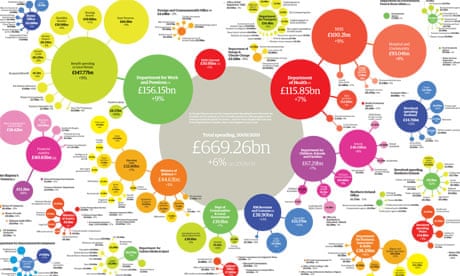Nearly every major department could be in breach of the government's own open data license, after Cabinet Office minister Francis Maude committed to force them to publish their spending data in transparent formats today.
The Minister, in charge of the government's transparency drive, said that departments who continue to publish the data in their annual reports in PDF format would be 'dealt with'.
"Data in annual reports in PDF, that is in breach of our own open government license - and we will deal with that," he said
The Open government License commits the government to publishing data in machine readable formats - spreadsheet files such as CSV or excel.

Every year each department publishes its annual report including comprehensive total figures for each area of spending. The reports are the final word in each department's finances and are laid before parliament in July, according to Treasury best practice rules. Only the Department for International Development routinely publishes the data in its annual report as an excel download. Every department publishes them as Adobe PDDF files.
This year, both the Ministry of Defence and the Department of Health have still not published their annual reports and have said they will not do so until November - seven months after the end of the financial year they cover.
"There hasn't been a uniform enthusiasm" for the government's open data drive, Maude admitted.
The only alternative to annual reports is the Treasury COINS database, which at over 1GB, is inaccessible to those without the software to handle big data dumps. The treasury does publish the Public Expenditure Statistical Analyses (PESA) but it is less detailed than the reports themselves.
Maude called for journalists to embrace the thousands of datasets released by the Government to hold it to account. "Journalists everywhere need to engage with this data to expose waste, incompetence and corruption wherever they see it.
"That's why I'm issuing a call to arms to the media the world over to hold the feet of government officials and ministers like me squarely against the fire."
He says the the government has now published 8,000 datasets, making it the world leader in open data.
"I don't have any doubt that giving our Press a lot of data to pore over will at times be uncomfortable for us in Government. But that's the whole point. A closed door culture encourages complacency at best and at worst corruption."
The Minister was speaking at an event to mark the first anniversary of the Open Government Partnership - of which Britain is now co-chair with Indonesia until September next year. The government is encouraging others around the world to duplicate what it has done by making the site's source code open.
"There's nothing fluffy about transparency. It's hard edged and demanding and serious," he said. "You have to mean it, you have to stick with it and when it gets uncomfortable you have to go through with it."
"Once it starts, you can't go back."
NEW! Buy our book
Facts are Sacred: the power of data (on Kindle)
More open data
Data journalism and data visualisations from the Guardian
World government data
Search the world's government data with our gateway
Development and aid data
Search the world's global development data with our gateway
Can you do something with this data?
Flickr Please post your visualisations and mash-ups on our Flickr group
Contact us at data@guardian.co.uk

Comments (…)
Sign in or create your Guardian account to join the discussion